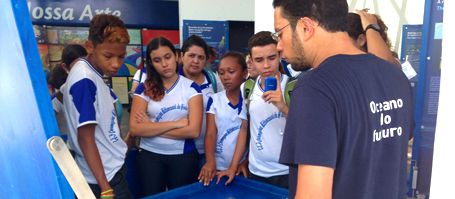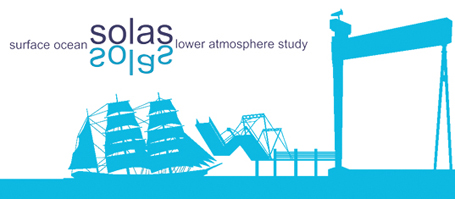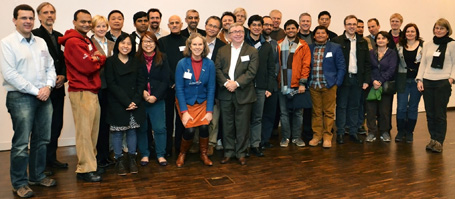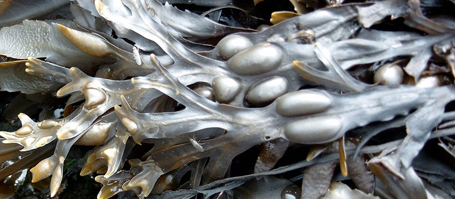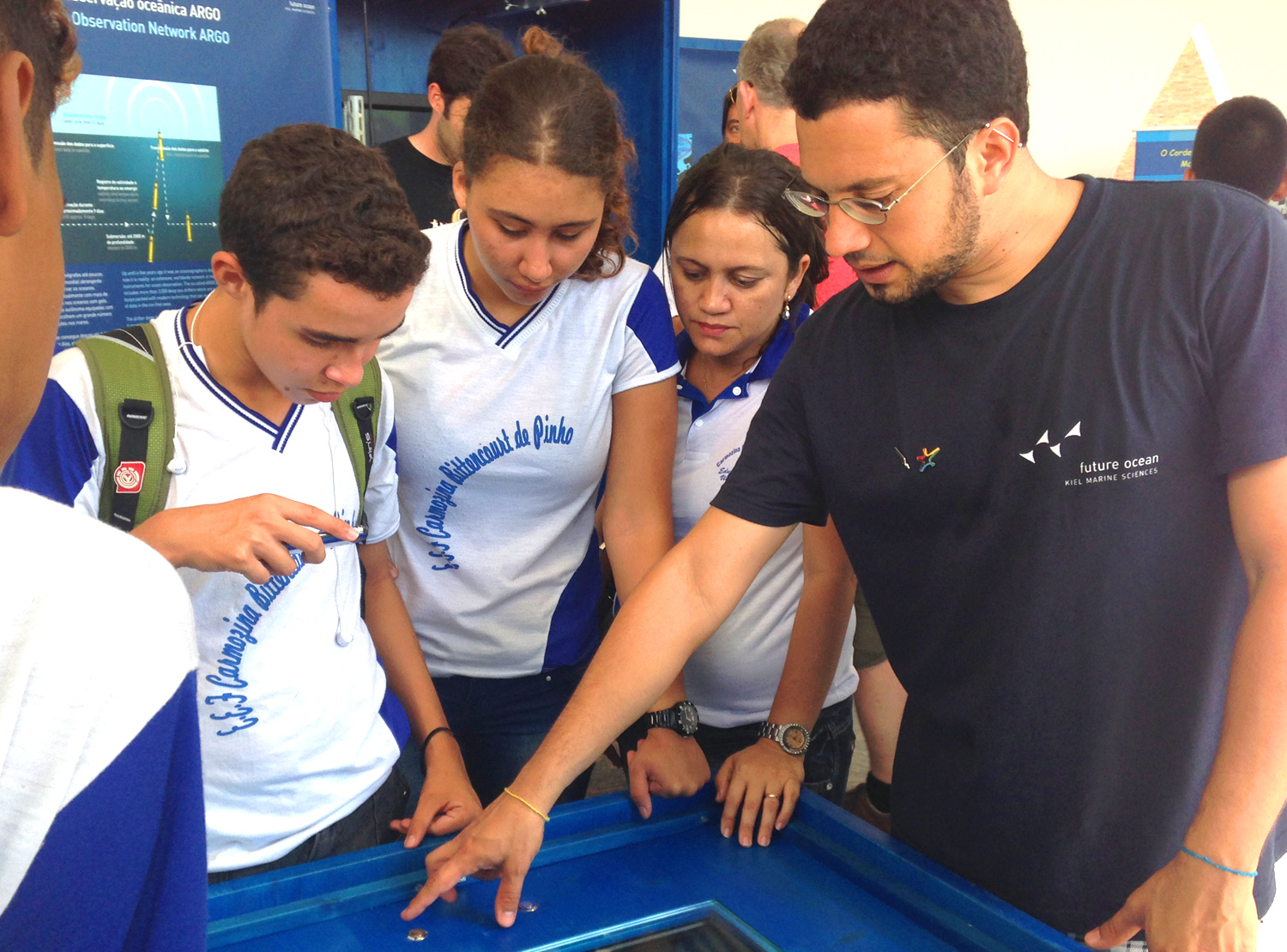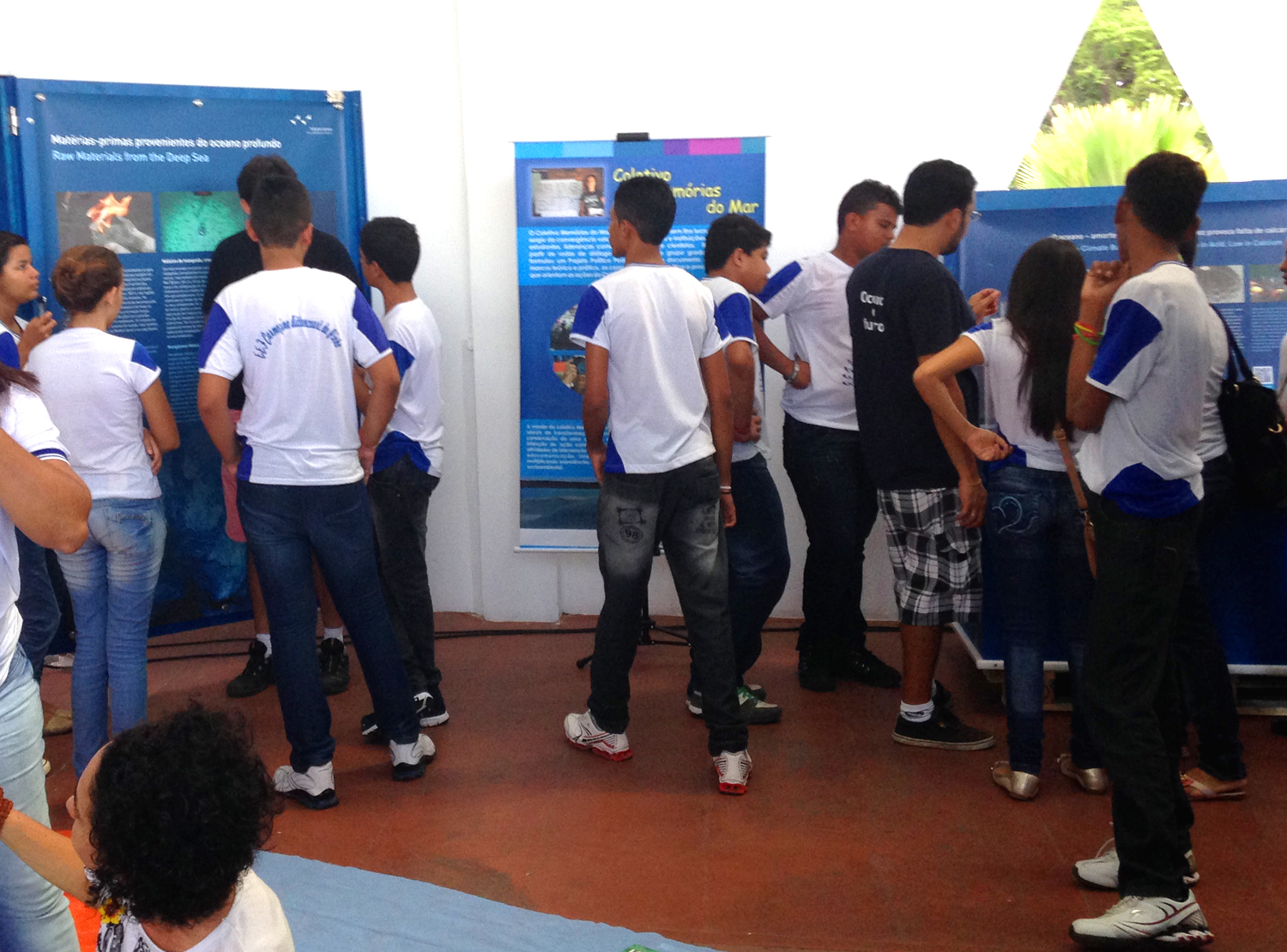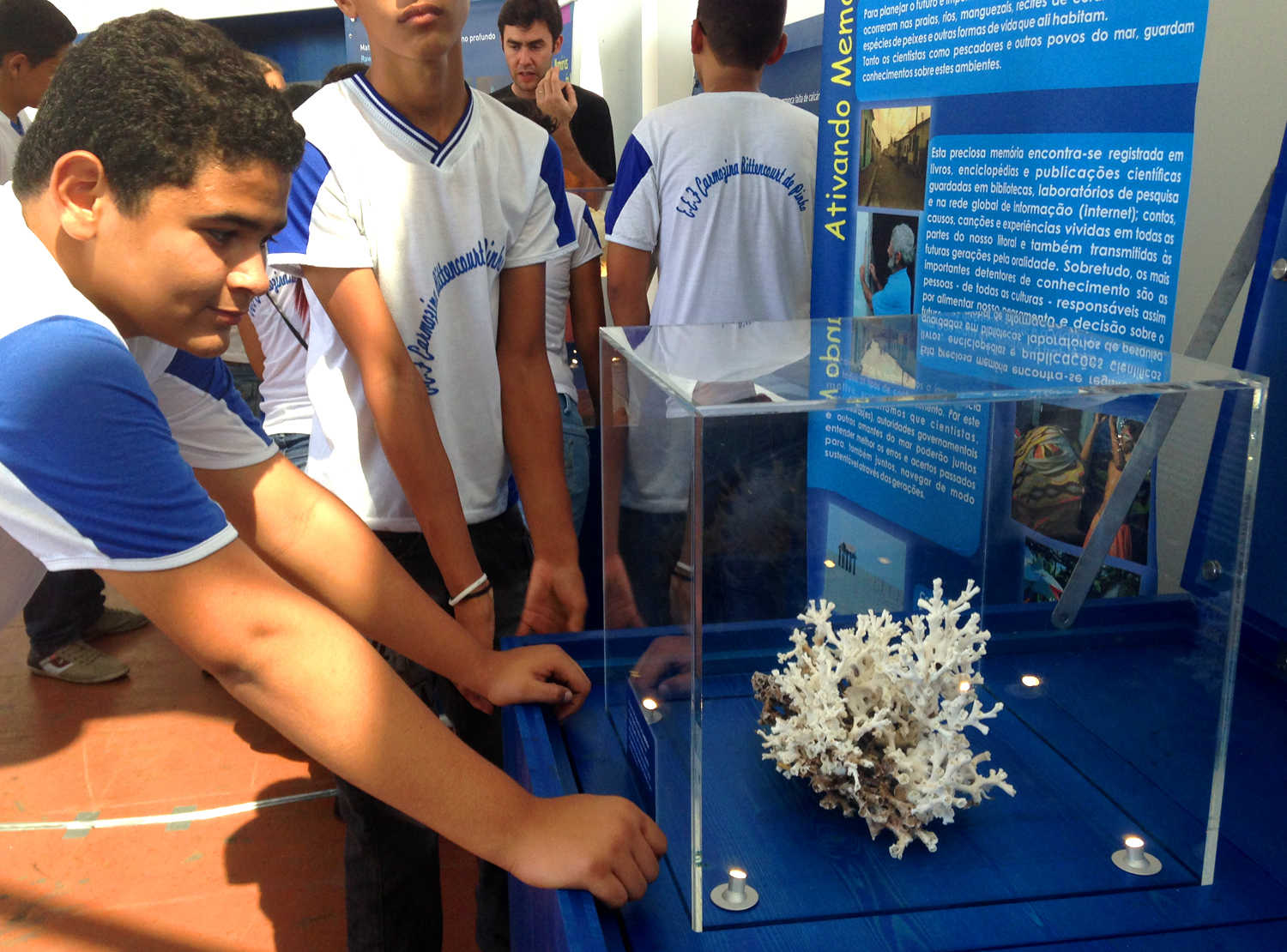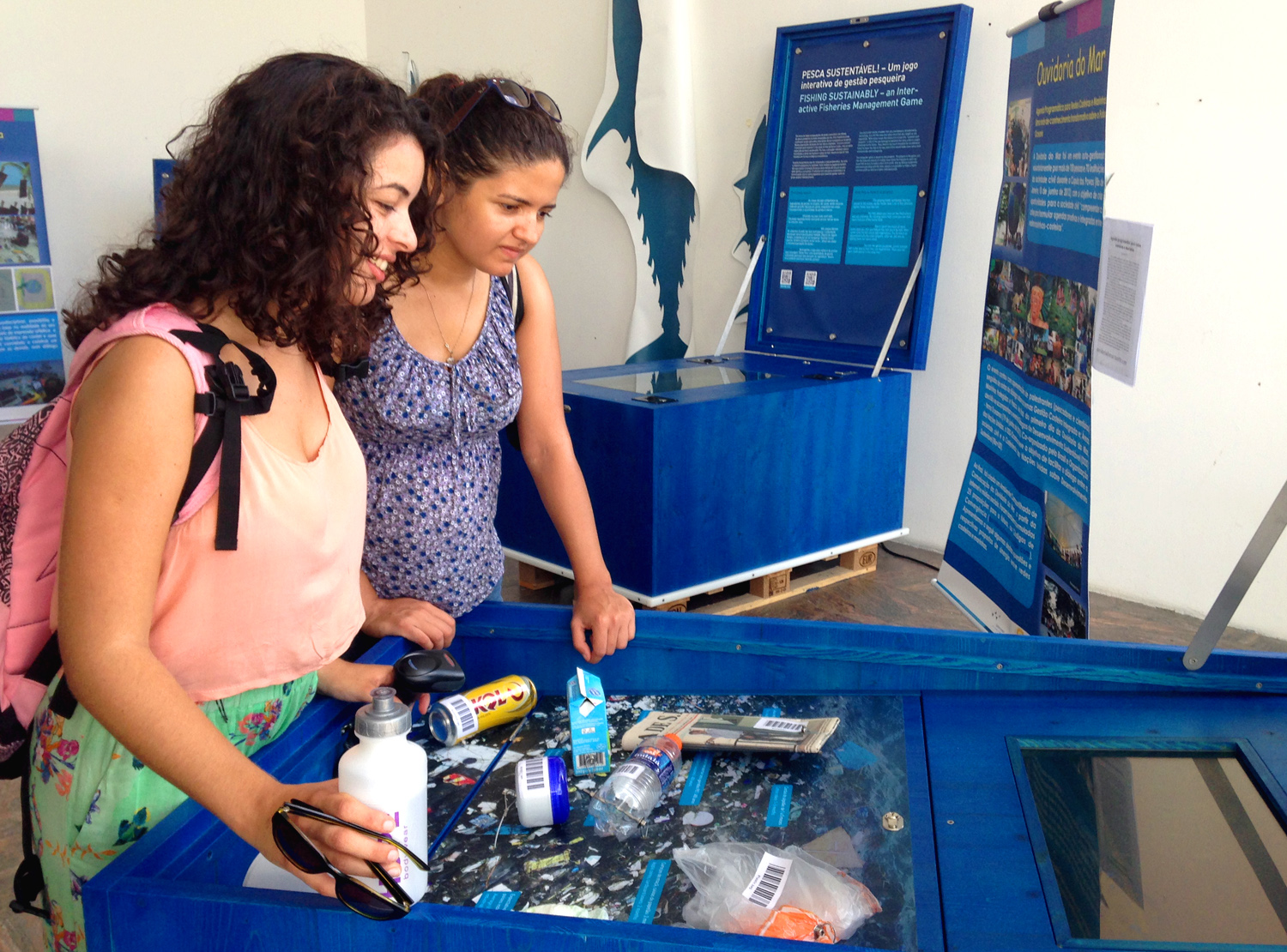Joint press release of the Cluster of Excellence „The Future Ocean“ and GEOMAR Helmholtz Centre for Ocean Research Kiel
The ceremonial opening on Wednesday 28th May in “Dragao do mar”, the most important cultural and event center in the metropolis with three million inhabitants in the northeast of Brazil was more than succesfull. On the first day more than 200 curious visitors, including school children, came to take a look at the exhibition. The coming weekend also promises to attract large numbers of the public. Both visitors and premier guests from the German Academic Exchange Service (DAAD), the German House of Research and Innovation (DWIH) and the German Embassy were impressed by the concept of the Kiel exhibition designers.
The exhibition project is the result of an invitation from the Foreign Office in Berlin. The modular and easily transportable exhibition, developed in Kiel, is one of the highlights at the conclusion of the German-Brazilian Year 2013-2014 and was organized together with the Brazilian project partner, the DWIH in São Paulo and the DAAD. The goal of the traveling exhibition is to present current questions in marine research with their interdisciplinary solution approaches and, at the same time, advertise Germany and Kiel as excellent places to do research. The target audience includes the interested public, school and university students as well as decision makers from politics, business and science.
With the help of several examples, the exhibition casts a spotlight on changes in the world’s oceans and the interdependency between humans and the ocean: the topic Ocean – Climate Buffer? explains the influence of the ocean on the global climate and shows how marine biotic communities react to rising CO2 concentrations. The area Sustainable Fisheries illustrates how sustainable fisheries management can contribute to combatting overfishing in the world’s oceans. Global, innovative ocean observation systems as a basis for modern marine research are the topic of the module Ocean Observation. Development of Coastal Zones explains how humans influence the development of the coasts and how sustainable coastal management contributes to solving conflicts over utilization. Waste Accumulation is a very topical subject, which is also addressed in the exhibition. Why does waste accumulate in the ocean, how long does it remain there and what consequences does it have for marine ecosystems? In conclusion the module Raw Materials from the Deep Sea tells how the sea floor is being studied in the search for resources and which resources can be found there. In addition it explains how to legally regulate future use and whether it can be designed in an environmentally compatible way.
“The connection to the host country Brazil was especially important to us in order to reach the people where they live” says Prof. Dr. Martin Visbeck, Speaker of the Cluster of Excellence “The Future Ocean”. “For one thing we have used the results of research from collaborations between Kiel scientists and Brazilian partners and universities, for another the presentation is tailored for local conditions”, continues Visbeck. Examples are a coastal management project from the federal state of Pernambuco or a look at the coastal development of the Parnaiba Delta. Further, the so-called fish length game uses fish species native to Brazil.
“We have placed special emphasis on the dialogue between science and the public,” explains the head of Public Outreach in the Cluster of Excellence, Friederike Balzereit. “Visitors can ask questions and give feedback directly to the scientists,” says Balzereit further. In addition the exhibition blog www.oceanblogs.org/futureoceandialogue and the newly designed web presence www.futureocean.org/dialogue invite those interested to view further information and contribute to the exchange. “By means of these media those interested can visit the exhibition virtually without having to be in Brazil.”
The exhibition will tour through Brazil during the course of the year; the cities Rio de Janiero in July and Natal in September are next on the list. And when the exhibition container returns to Kiel at the end of 2014, this is just the beginning. The exhibition “Future Ocean Dialogue” is designed in such a way that it can be easily adapted for any international location and thus it will continue to carry the message of Kiel Marine Sciences throughout the world.
Links:
www.futureocean.org Cluster of Excellence “The Future Ocean”
www.uni-kiel.de/index-e.shtml Kiel University
www.geomar.de/en/ GEOMAR Helmholtz Centre for Ocean Research Kiel
www.futureocean.org/dialogue Ausstellungs-Website „Future Ocean Dialogue“
www.oceanblogs.org/futureoceandialogue Exhibition Blog
Contact:
Friederike Balzereit, Public Outreach, Cluster of Excellence “The Future Ocean”, Tel.: +49 431-880-3032
E-mail: fbalzereit@uv.uni-kiel.de
…
Press material
Opening ceremony of the Exhibition on May 28th in Dragao do Mar, Fortaleza/Brazil
A Brazilian guide explains one of the many exhibits to a group of high school students.
Image: Friederike Balzereit, Future Ocean
A Brazilian school group visits the exhibition "Future Ocean Dialogue."
Among the 200 exhibition visitors on opening day were many school classes.
Image: Friederike Balzereit, Future Ocean
A student observing the module "The Ocean as a Climate Buffer."
The mostly young visitors at the opening ceremony find the complex exhibits impressive.
Image: Friederike Balzereit, Future Ocean
